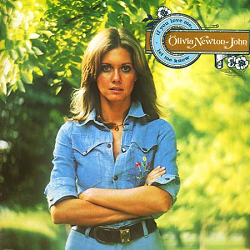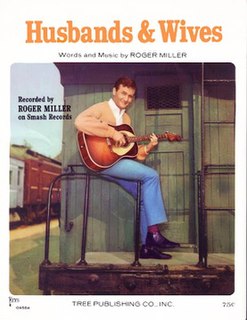Related Research Articles

Gerry and the Pacemakers were a British beat group prominent in the 1960s Merseybeat scene. In common with The Beatles, they came from Liverpool, were managed by Brian Epstein, and were recorded by George Martin. Their early successes alongside the Beatles were instrumental in popularizing the Merseybeat sound and launching the wider British beat boom of the mid-1960s.

"You'll Never Walk Alone" is a show tune from the 1945 Rodgers and Hammerstein musical Carousel. In the second act of the musical, Nettie Fowler, the cousin of the protagonist Julie Jordan, sings "You'll Never Walk Alone" to comfort and encourage Julie when her husband, Billy Bigelow, the male lead, accidentally falls on to his knife whilst trying to run away after attempting a robbery with his mate Jigger and dies in her arms. The song is reprised in the final scene to encourage a graduation class of which Louise is a member. The now invisible Billy, who has been granted the chance to return to Earth for one day in order to redeem himself, watches the ceremony and is able to silently motivate Louise and Julie to join in with the song.

Gerard Marsden MBE was an English singer-songwriter, musician and television personality, best known for being leader of the Merseybeat band Gerry and the Pacemakers. He was the younger brother of fellow band member Freddie Marsden.

"Wichita Lineman" is a song written by the American songwriter Jimmy Webb in 1968. It was first recorded by the American country music artist Glen Campbell with backing from members of The Wrecking Crew and was widely covered by other artists.
"He Ain't Heavy, He's My Brother" is a ballad written by Bobby Scott and Bob Russell. Originally recorded by Kelly Gordon in 1969, the song became a worldwide hit for the Hollies later that year and also a hit for Neil Diamond in 1970. It has been recorded by many artists in subsequent years. The Hollies' version was re-released in 1988 and again was a major hit in the UK.

"Angel of the Morning" is a popular song written by Chip Taylor and recorded by many artists, most notably by Merrilee Rush, P. P. Arnold, Connie Eaton, Mary Mason, Guys 'n' Dolls, Melba Montgomery, Olivia Newton-John, Bettye Swann and, most famously, Juice Newton.

Queen of Hearts is a country-pop song written by Hank DeVito, the pedal steel guitarist in Emmylou Harris's backing group The Hot Band, and was first recorded by Dave Edmunds on his 1979 album Repeat When Necessary. It was released as a single and reached No. 11 in the UK and No. 12 in Ireland that year, but failed to chart substantially elsewhere in the world. The most successful version of the song was recorded by Juice Newton in 1981 – her version reached #2 in the United States and South Africa. The song also reached the top 10 in Canada, Australia, Denmark, and New Zealand.

"Red Roses for a Blue Lady" is a 1948 popular song by Sid Tepper and Roy C. Bennett. It has been recorded by a number of performers. Actor-singer John Laurenz (1909–1958) was the first to record the song for Mercury Records. It rose to #2 on the weekly “Your Hit Parade” radio survey in the spring of 1949. The original 78rpm single was issued on Mercury 5201 - Red Roses For A Blue Lady by John Laurenz.

If You Love Me, Let Me Know is a United States and Canada-only album by singer Olivia Newton-John, released on 28 May 1974. Other than the title track, all the material was from her previous three albums, Olivia (1972), Music Makes My Day (1973) and Long Live Love (1974). It is her first album to top the Billboard 200 pop albums chart.

"Nothing's Gonna Change My Love for You" is a song written by composers Michael Masser and Gerry Goffin. It was originally recorded by American singer and guitarist George Benson for his studio album 20/20, released by Warner Bros. Records. This original version was produced by co-writer Masser, and was released as a single in Europe only in 1985. Two years later, in 1987, Hawaiian singer Glenn Medeiros sang his cover version, which became a worldwide success.

"Hopelessly Devoted to You" is a song recorded by English-born Australian singer Olivia Newton-John for Grease: The Original Soundtrack from the Motion Picture (1978). It was written and produced by John Farrar and originally performed by Newton-John in the film version of the musical Grease (1978). The song was released in Australia in August 1978 and peaked at number 2. It reached number three on the US Billboard Hot 100 and number seven on the Adult Contemporary chart. On the country chart, "Hopelessly Devoted to You" peaked at number 20 and was her first top 20 country hit in two years. Newton-John performed the song at the 21st Grammy Awards.
"To Know Him Is to Love Him" is a song written by Phil Spector, inspired by words on his father's tombstone, "To Know Him Was to Love Him." It was first recorded by the only vocal group of which he was a member, the Teddy Bears. Their recording spent three weeks at No. 1 on the Billboard Hot 100 chart in 1958, while reaching No. 2 on the UK's New Musical Express chart. Peter & Gordon and Bobby Vinton later had hits with the song, with its title and lyrics changed to "To Know You Is to Love You". In 1987, the song was resurrected by Dolly Parton, Linda Ronstadt, and Emmylou Harris, whose Trio recording topped the U.S. country singles chart. The song is in 12/8 time. The tune is essentially a slowed-down version of the 1926 hit "When the Red, Red Robin ".
"Muskrat Love" is a soft rock song written by Willis Alan Ramsey. The song depicts a romantic liaison between two anthropomorphic muskrats named Susie and Sam. It was first recorded in 1972 by Ramsey for his sole album release Willis Alan Ramsey. The song was originally titled "Muskrat Candlelight" referencing the song's opening lyric. A 1973 cover version by the folk/rock band America—retitled "Muskrat Love" for the lyrics that close the chorus—was a minor hit reaching number 67 on the Billboard Hot 100 chart. In 1976, a cover by pop music duo Captain & Tennille resulted in the song's highest profile, peaking at number four on the Hot 100 chart. It also reached number two on the Cash Box chart, which ranked it as the 30th biggest hit of 1976.

"Til I Hear It from You" is a song by the Gin Blossoms that was released as the lead single from the soundtrack to the film Empire Records in July 1995. It topped the Canadian RPM Top Singles chart for six weeks, rose to number eight in Iceland, and reached number 39 in the United Kingdom. In January 1996, it was re-released as a double-A side with "Follow You Down" in the United States, peaking at number nine on the Billboard Hot 100. Billboard described "Til I Hear It from You" as "the closest thing to a perfect pop song to hit radio in recent memory" lauding its "breezy and wonderfully infectious melody, the boy-needs-girl lyrics, and the earnest execution."

"Husbands and Wives" is a song written and first recorded by American country music singer Roger Miller. Miller's original, from his album Words and Music, was released in February 1966 and was a crossover hit for him, reaching Top Ten on the U.S. country and Adult Contemporary charts, as well as Top 40 on the pop charts. Since the release of Miller's original, the song has been covered by several other artists, including The Everly Brothers, Ringo Starr, Neil Diamond, a duet between David Frizzell and Shelly West, Jules Shear, and Brooks & Dunn, whose version was a number-one country hit in 1998.

"Please Mr. Please" is a song written by Bruce Welch and John Rostill, both members of British pop singer Cliff Richard's backing band, The Shadows. Welch had originally recorded the song himself in 1974 with no commercial success.

"You Can Make History " is a song by Elton John, initially recorded in 1996 and released on the American version of the compilation Love Songs. As the song was recorded after the release of the original European version of the compilation, it was not included on that version.

"Daddy Don't You Walk So Fast" is a song written by Peter Callander and Geoff Stephens and performed by Wayne Newton. The song appeared on Newton's 1972 album, Daddy Don't You Walk So Fast.
"Remember When " is a song written by Bert Kaempfert, Charles Singleton and Eddie Snyder, and performed by Wayne Newton. It reached #15 on the U.S. adult contemporary chart and #69 on the Billboard Hot 100 in 1965. It was featured on his 1966 album, Wayne Newton...Now!
Butterscotch were an English soft rock band which consisted of Chris Arnold, David Martin and Geoff Morrow, who are also known collectively as the songwriting and record production trio Arnold, Martin and Morrow. They are best known for their top 20 UK and Ireland hit, "Don't You Know ".
References
- ↑ Wayne Newton, "Can't You Hear the Song?" Chart Positions Retrieved August 4, 2014
- ↑ Wayne Newton, "Can't You Hear the Song?" Canadian AC Chart Position Archived 2014-08-10 at the Wayback Machine Retrieved August 4, 2014
- ↑ Wayne Newton, "Can't You Hear the Song?" Canadian Top Singles Chart Position Archived 2014-08-10 at the Wayback Machine Retrieved August 4, 2014
- ↑ Wayne Newton, Can't You Hear the Song? Retrieved August 4, 2014
- ↑ Wayne Newton, "Can't You Hear the Song?" single release Retrieved August 4, 2014
- ↑ Gerry Marsden, "They Don't Make Days Like That Any More" single release Retrieved August 4, 2014
- ↑ Guys 'n' Dolls, " Here I Go Again " single release Retrieved August 4, 2014